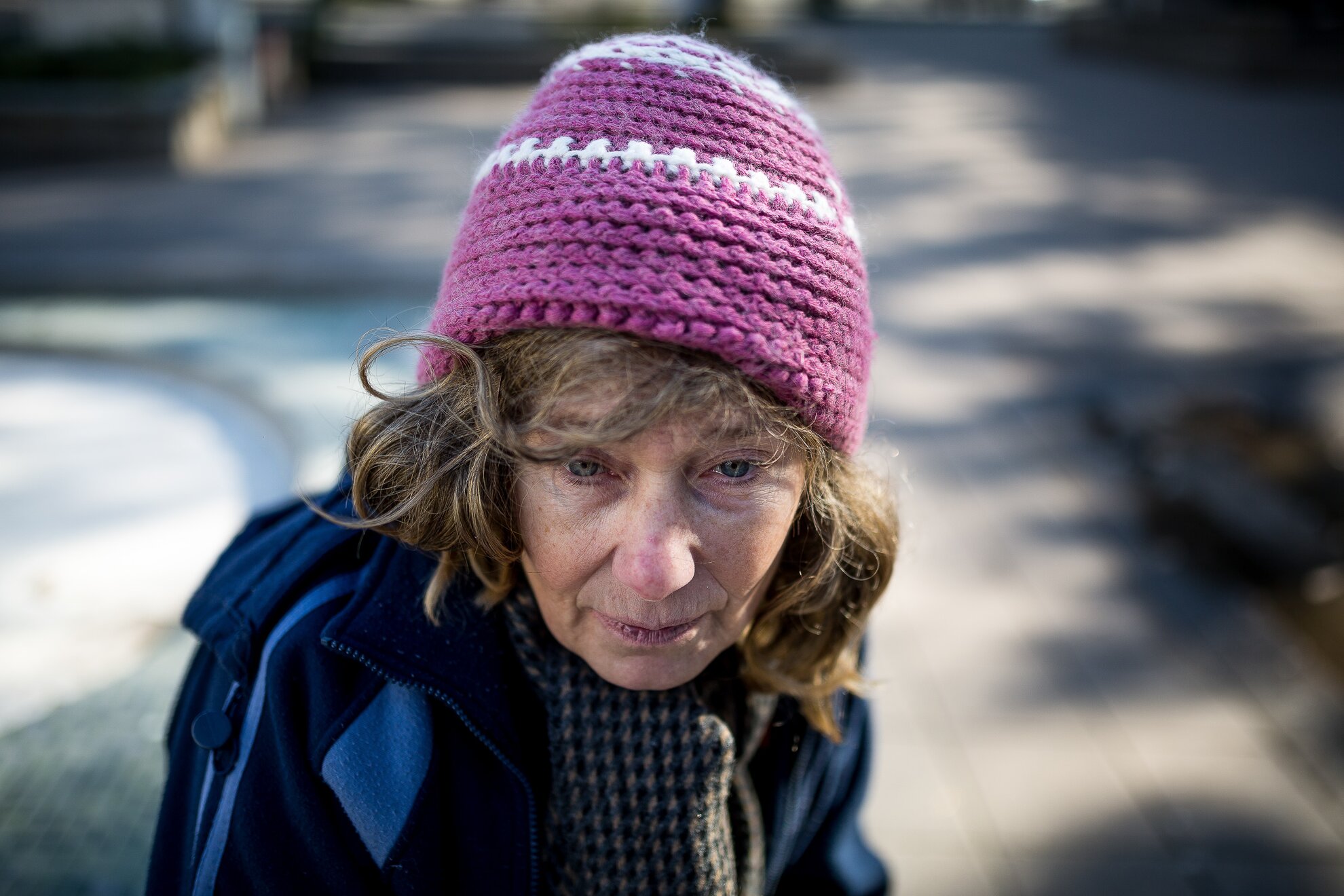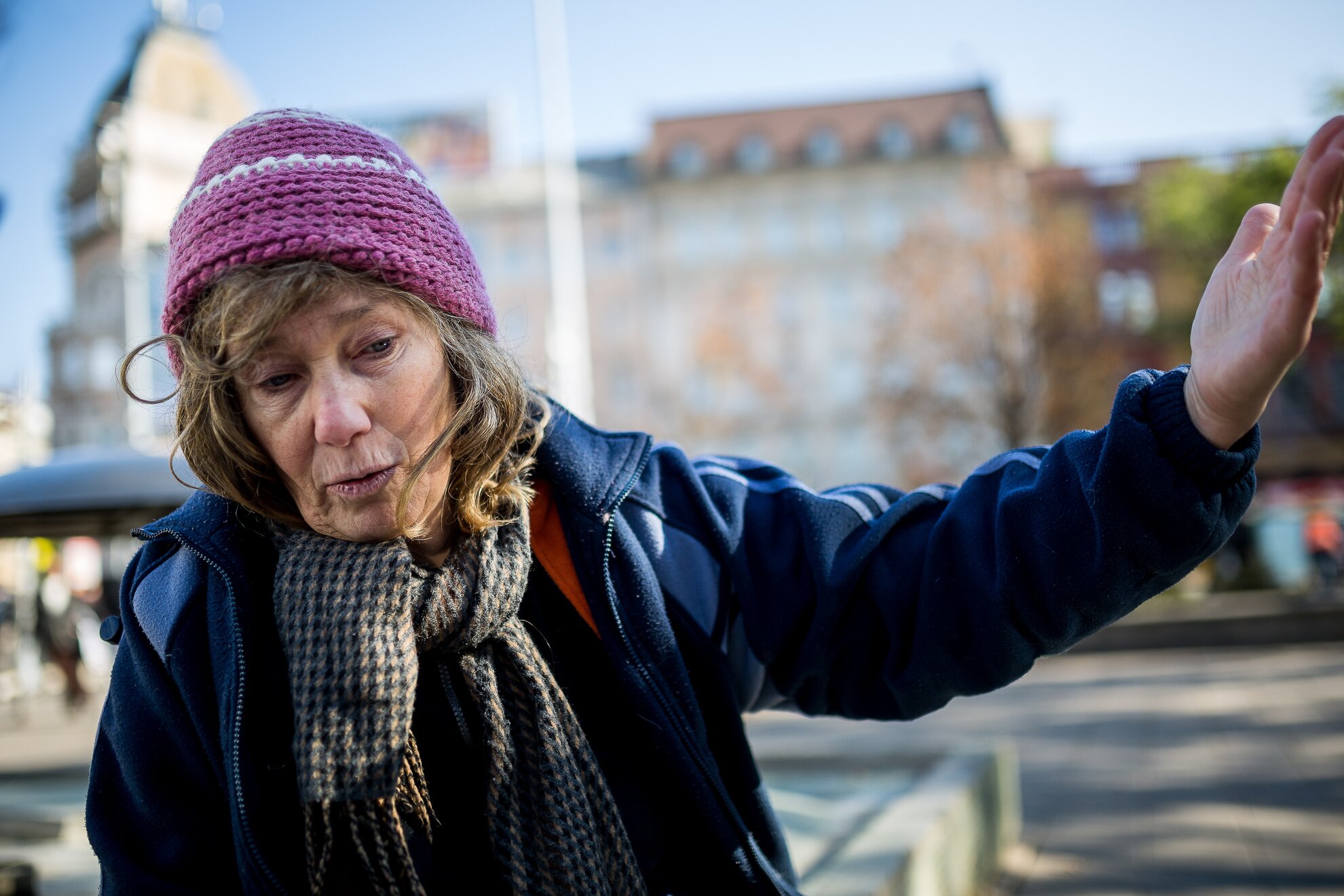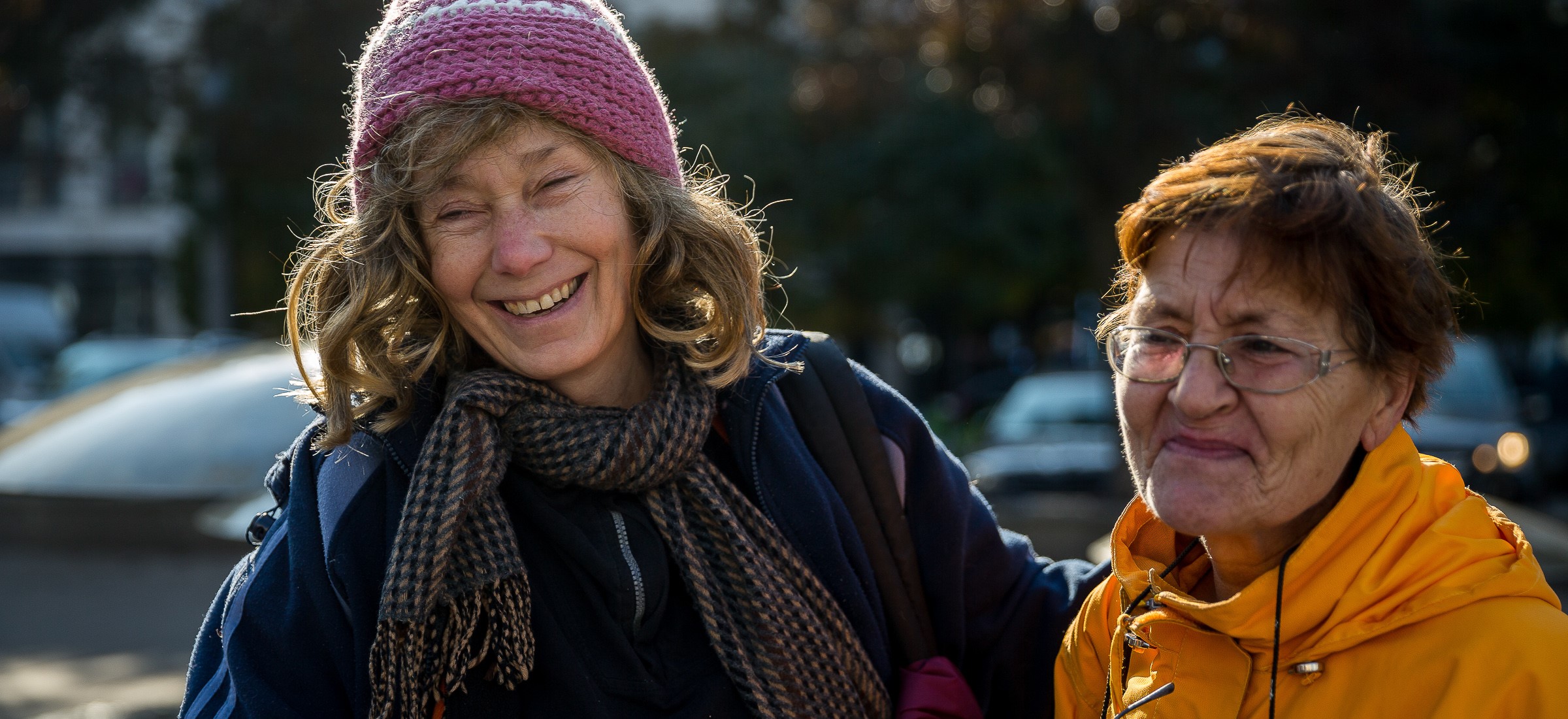Magyar actress Kriszta Szalay hit the streets of Budapest disguised as a homeless woman on Monday, October 24th, and spent four days roaming the city. Even though four long days is only enough to take a quick glance at the life of a homeless person, and Kriszta even “cheated” a little – on the first night she couldn’t get into a homeless shelter at all, so she went home and only continued the project in the morning – she still managed to carry out her original mission: trying to fight obstacles that destitute job seekers have to face while trying to break out of a deeply desperate situation.The actress had a surprising experience with the attitudes of society, as well as her reception as a newcomer among homeless people. By the end of one single day, Kriszta learned enough to draw this conclusion: it would be a huge help for homeless people if more public toilets were scattered around the city, as well as places where they can store their stuff, since homeless people usually have to carry all of their meager possessions around with them, often in a suitcase.Street sweeper wanted: CV with a photograph requiredKriszta embarked on this adventure with minimal equipment; a couple hundred forints in her pocket, old and overused clothes, and a wig borrowed from Budapest’s Centrál Theater. The disguise was so successful that nobody recognized her, not even her close acquaintances or students. Kriszta never revealed herself, and she didn’t have a backup story – however, nobody ever asked how she ended up on the street anyway.

While seeking odd jobs, she plunged into a maze of administrative issues. The most absurd experience was when she tried to apply to do some street sweeping, but this required her to send an application and CV with a photograph via e-mail. This is understandably a very difficult task for a homeless person. She even traveled all the way to the Chinese market in Kőbánya in hopes of finding a job there, and finally on Thursday someone promised her a position.
During this adventure, she was most surprised by the friendliness of fellow homeless people. On the very first day a man at Blaha Lujza Square took her to a food distribution point at Keleti Railway Station. On the third day she sat down at Kálvin Square, and a young homeless man walked up to her right away and asked if she was new to this life; when she said yes, he offered that his group would take care of her, and from then on, she became part of their community.

Of course, the world of the streets is no bed of roses. Kriszta saw several hopelessly desperate alcoholics as well. “When they are tipsy their judgements are clouded,” she said, but she never got into any debates with them, so she didn’t get hurt.Withering glancesMonday was still a day spent in anxiety and shock, feeling “left out in the cold”. On that day she even went to Deák Square to see if she could perhaps spend the night there, but witnessing the world of drug addicts, she realized that she couldn’t endure absolutely everything affiliated with life on the streets. On that day she didn’t manage to get into the homeless shelter on Podmaniczky Street, so she slept in her husband’s car.On Tuesday, she found herself wondering why she wanted to do this in the first place, but on Wednesday she fell into a sort of meditative state, strongly believing that everything always works out in the end.
On the last day she felt like she lost her inhibitions; she thought that even if she just sits down on the street to eat nobody will notice, or rather care. “Nevertheless, I still got withering glances, suggesting: if you had worked and studied harder, you would not be sitting there now,” she added.Where even the king goes on footKriszta said she walked an awful lot; “I could have done El Camino.” She mostly strolled the streets of District VII and District IX, but when seeking a job, she was sent to the most remote parts of the city. She traveled on the bus and tram without a ticket, and when controllers came aboard she got off. Excluding the first day, she didn’t accept food at the distribution points, instead subsisting on apples and oatmeal from home. She spent a total of about 500 forints in four days; her only indulgence was on the first critical day, when she was really craving a deviled egg.Considering that it was the last week of October, the weather was surprisingly favorable, but while ordinary people wore T-shirts at Deák Square, she was cold. “I walked all day and didn’t have anywhere to sit down and relax for a second. This lifestyle and fatigue makes you really feel the cold,” said Kriszta. Even though she had clean clothes, she felt the dirt of the city on her skin.

The biggest obstacle was always finding a restroom, which is a challenge for even regular people in Budapest. Kriszta once tried to use the bathroom of a nursing home, but they sent her away. However, she also had a few positive experiences, as she was allowed to use the bathroom at a gas station and at a Turkish restaurant, too.No need to worryExcluding all of the withering glances, Kriszta wasn’t insulted by passersby; moreover, when she settled down at Kálvin Square holding a sign saying “would you talk to me?” a girl sat down next to her, and later brought her food. There were people who wanted to save her and gave her money, while others prayed for her. Most people’s looks reflected more fear than indifference. When she walked by a boy on the tram he carefully pulled his bag closer. “Homeless people don’t steal from other people, only from each other – but I didn’t have anything to steal. On the first night a woman asked me if I had any warm clothing, so I gave her one of my jumpers – this is how I started losing my stuff," she said.

Interestingly, Kriszta wasn’t frightened on the street; she passed by mafia members counting banknotes at the Chinese market, and as a red-haired actress she certainly would not have felt safe around them, but disguised as a homeless woman, she even walked up to them and asked if they had any jobs for her. “This status protects you.”On the plus side, Kriszta has a communicative and easygoing personality; she thinks that a more depressive person would not find such company or a job in only four days. She thinks she would be a “good” homeless person, which means that she would always manage to get by. “Many people are not like that though, and easily end up on the street,” she added.
She is planning to unveil the details of her project, called One Homeless Woman, in a play in December.




